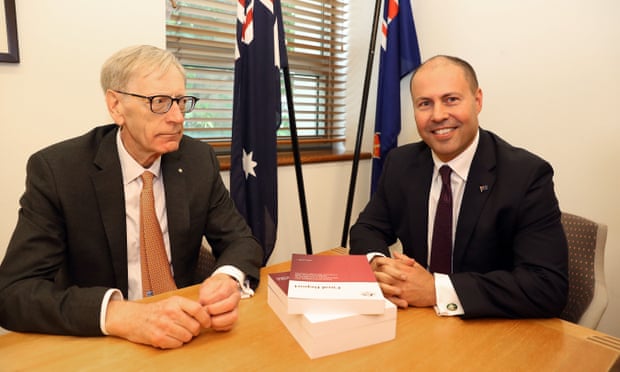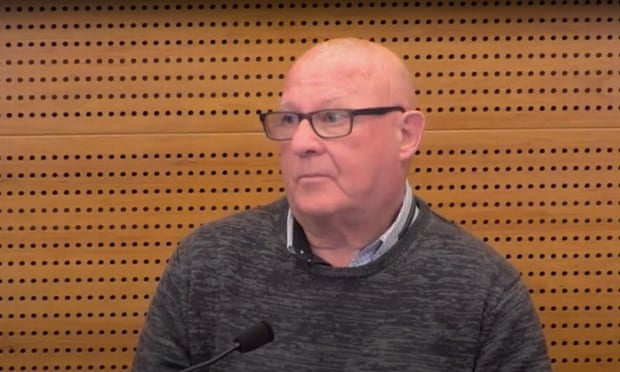Carmel has one close friend, two dogs and a $25,000 debt she is paying off at $114 a fortnight.
How the 66-year-old pensioner from the outer suburbs of Melbourne came into debt is a long story. An alcoholic, Carmel quit drinking two years ago only to develop a television shopping habit. When she maxed out a $4,700 credit card, she went to her bank to take out a loan to cover the bill and maybe make some repairs to her home.
When she asked for $20,000 the bank said why not $25,000?
“They knew I had an addictive nature. I’m a former alcoholic. I told them everything. They had all my transaction information right there in front of them. They could see I had a problem,” she says. “I just went along with them. I thought they must know what they’re doing.”
It was money Carmel was never going to pay back and so she sought help to fight it. When they looked at it, her bank admitted it should not have lent her the money and said she no longer had to pay interest on the loan – but she still tries not to think about the sum she owes.
“It was a win,” she says. “I was proud. They’re big people. I’m only a small little dot. You know?”
Carmel is not alone. Henry, 56, came into debt when he took out a series of loans to bring his partner to Australia from overseas. Not long after, he says, he was in his car when his bank rang him and told him he had been pre-approved for a loan of $30,000.
The paperwork, he says, had already been done.
“This was on the phone. I was in my car,” Henry says. “And I needed to get a new car, so I took the loan. That wasn’t the issue though. The bank made up some figures to meet the lending criteria.”
At that point he owed roughly $60,000 and was paying $2,700 in repayments.
“It is robbery, but apparently it’s legal,” he says.
Love, addiction, divorce, an accident at work – the reason many find themselves in debt varies and now the government is looking to make it even easier with proposed changes to responsible lending regulations that hit the federal Senate this week after passing the lower house.
The bill has two parts. While the explanatory materials are technical and complicated, the simplified version is that the first half of the bill proposes an overhaul of responsible lending laws in a way that would remove the positive obligation on lenders to check the ability of a borrower to repay their debts.
It does this by changing the way these laws are enforced. Rather than having the Australian Securities and Investments Commission (Asic) enforce the regulations, the changes will see that responsibility fall to the Australian Prudential Regulatory Authority (Apra), a body primarily concerned with the integrity of the financial system as a whole rather than specific individuals.
‘Borrowers will be made more accountable’
Under this system a lender would still be required to take “reasonable steps” to check whether a person has the capacity to pay a loan, but a lender would only need to show it has systems in place to perform these checks rather than actually make inquiries about a particular individual’s finances.
The second half of the bill deals with payday lending and consumer leases by introducing a watered-down version of an older Coalition plan to regulate the sector that fell into limbo after internal party opposition to the changes.
While the government appeared confident about the prospect of passing the legislation on Monday, it quickly became clear on Tuesday it would go nowhere in the face of opposition by every crossbench senator.
As a result, debate on the bill was put off until May at the earliest.
The need for the changes is not entirely clear. When they were first introduced the government said they were needed to ensure loans were easy to get in the wake of the pandemic. In early media releases the changes were described as setting up a “borrower beware” system that shifted the risk against lenders in favour of banks.
“Borrowers will be made more accountable for providing accurate information to inform lending decisions, replacing the current practice of ‘lender beware’ with a ‘borrower responsibility’ principle,” a government fact sheet explains.
Those words – “borrower beware” – may have disappeared from the talking points and the economy may be on its way to recovery but the government has remained determined to push ahead, with the treasurer, Josh Frydenberg, saying the changes are still needed to cut red tape.
“The reforms are intended to improve efficiency, reducing the time and cost associated with the provision of credit for consumers,” Frydenberg said.
“The current regulatory framework, which was put in place more than 10 years ago, too often leads to delays in consumers receiving credit, potentially impeding their purchasing decisions.”

The changes to the laws have been given broad support by the governor of the Reserve Bank, Philip Lowe, who appeared before a parliamentary committee in August last year to say that the principles of responsible lending were sound but the way they’ve been enacted “needs looking at again”.
“We can’t have a world in which, if a borrower can’t repay the loan, it’s always the bank’s fault,” Lowe said. “On a portfolio basis, we want banks to make some loans that actually go bad, because if a bank never makes a loan that goes bad it means it’s not extending enough credit.”
Consumer advocates and economists counter that circumstances have changed since then and the government’s rhetoric does not stack up to reality.
More importantly, they point out the legislation cuts against one of the chief recommendations of the royal commission into misconduct in the banking, superannuation and financial services industry that recommended responsible lending provisions be left alone.
“My conclusions about issues relating to the NCCP Act can be summed up as ‘apply the law as it stands’,” the commissioner, Kenneth Hayne, said.
‘Banks can’t approve loans fast enough’
The Consumer Action Law Centre’s chief executive, Gerard Brody, warns that should it pass, the bill will send a “huge green light” to lenders that will trigger a race to the bottom.
“Even if the big banks don’t change their practices immediately, there will be other lenders in the marketplace that will. They will see this as an opportunity to grab market share and reduce their standards so as to provide people more credit than they can afford,” Brody said.
“Then the competitive dynamics will follow that when one player does it, the others will follow or they will lose market share.”
Meanwhile the economist Dr Cameron Murray says that with the country’s housing sector booming and a backlog of applications from new home buyers, it is not clear whether the changes will have any real economic benefit at this point.
“Banks can’t approve loans fast enough right now,” Murray said. “I don’t think in that circumstance anything really changes, as we’re not at that point where any type of responsible lending rule is constraining the amount of willingness of borrowers to borrow and banks to lend.”
This was especially true in an environment of near-zero interest rates and an economy built around ever-increasing house prices.
“The longer we go with this [financialised] approach to housing, the harder it is to turn around,” he said. “At this point we can set the interest rate wherever we want. Economists hate regulations and price fixing, but they love fixing the price of money so long as them and their mates get to do it. And the interest rate is the biggest price there is.”
Outside the halls of power, the proposal has left many wondering why the government has changed course.

Robert Regan appeared as a witness before the royal commission where the pensioner told how he had become caught in a scam and had taken out a $50,000 loan from the ANZ bank.
The bank manager who filled out the form on his behalf had fiddled with the numbers to make sure they could give Regan the money, even though he was living on a pensioner’s income. When it came through, the manager helped him transfer $20,000 to the UK “without question”.
“I asked them, what date will I be free of this expense?” Regan says. “They said I’d be 101 years old. I said, ‘That’s fantastic. I hope you’re here when I come in to make my last payment’.”
Since then, the scammers have been caught – thanks to Regan’s own efforts – the debt has been waived and the CEO of the ANZ bank gave Regan an apology, a handshake and $100 for his trouble – but no refund.
With the changes Regan says he is worried about the next person who ends up in a similar situation to him.
“I was disappointed when I first heard about the idea,” Regan says. “Completely disappointed in Josh Frydenberg. He was the man with all the voice about what they’re going to do to keep the banks in control and now he’s letting them go.
“It’s a sad state of affairs for Australia, I think. When money overrules everything.”


